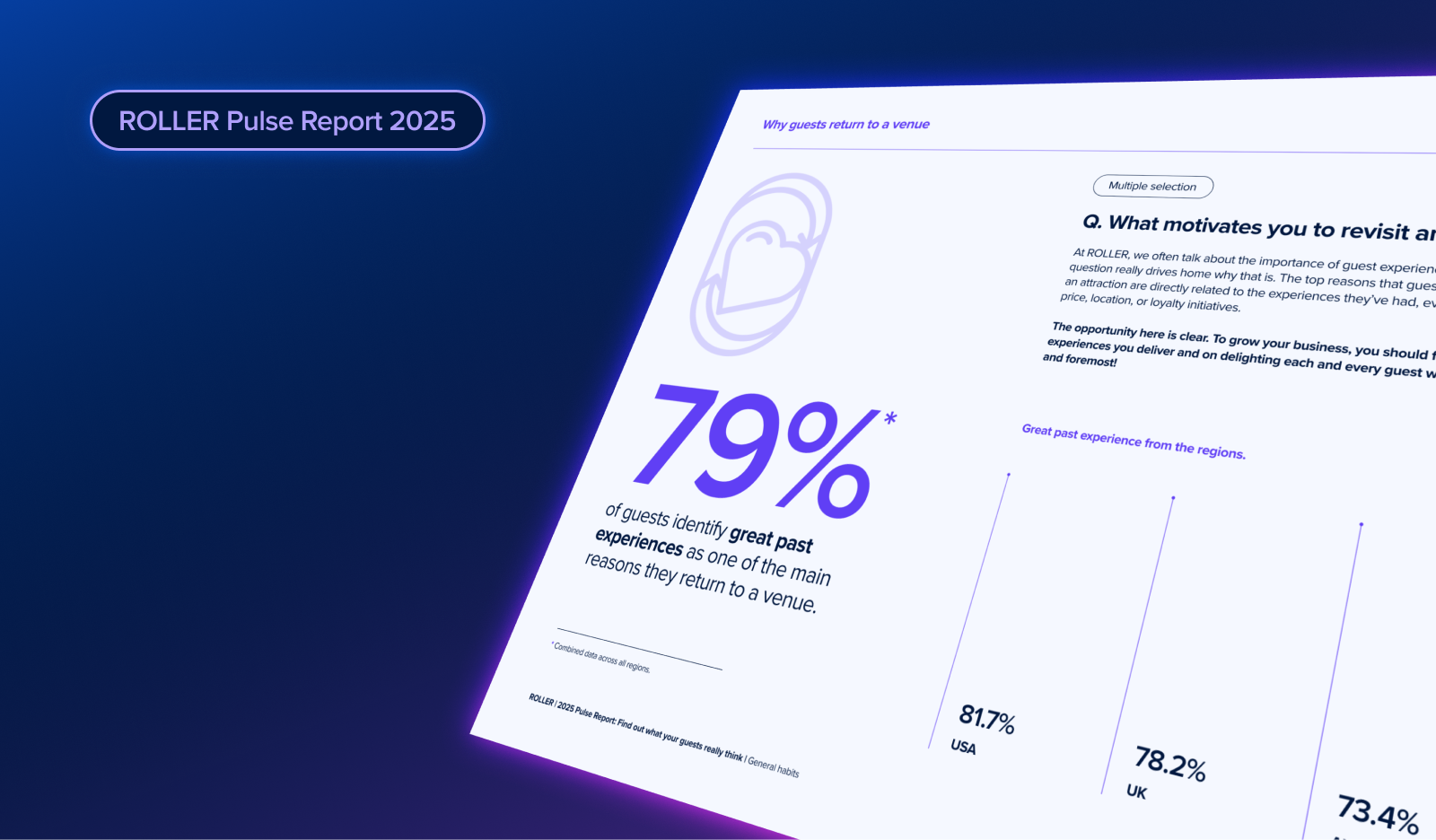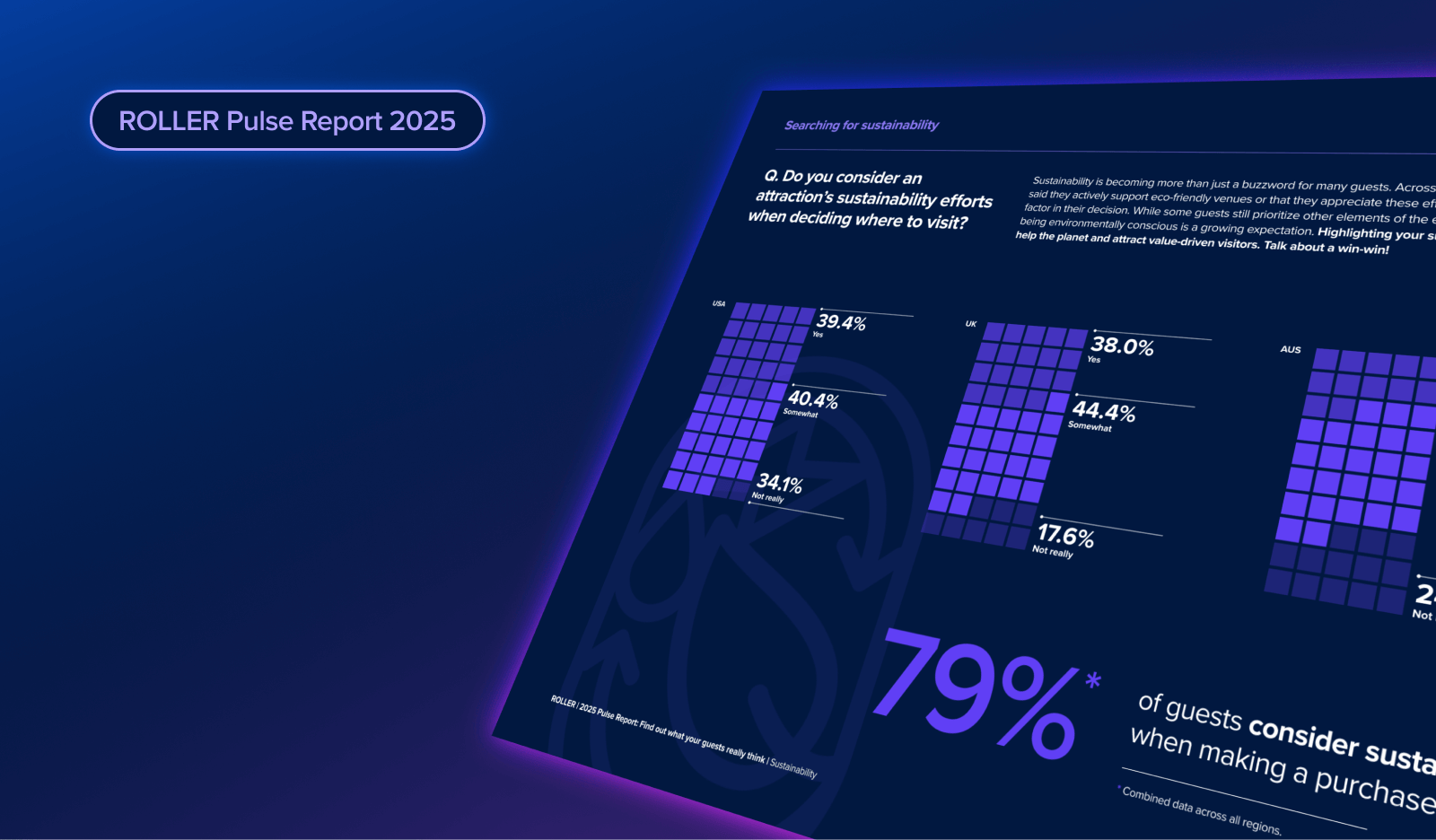Forget Upselling: Your Guest Experience Can Drive Up Per Cap

“Would you like fries with that?”
It’s probably the most common question in the world when you think of the term “upselling.” It taps into the nature of the guest making a quick impulse decision that leads to a small increase in revenue, and when asked consistently, adds up to a lot of potatoes and a noticeable bump in your average transaction size. The more guests you ask, the more you sell.
Spoiler alert: it doesn’t work in the attractions industry. When selling tickets, packages, VIP experiences, memberships, and annual passes, these products cannot be treated as an impulse buy at the register. It requires a little more finesse, a little more dialogue, and yes, a little more emphasis on personalizing the guest experience.
In fact, suggesting a membership or an annual pass shouldn’t even be presented as a question. It should be offered as a statement, coming from an expert in what will give the guest the greatest experience.
A typical transaction dialogue normally goes like this:
Employee: Hi, welcome! How can I help you?
Guest: Hello, We have two adults and three kids.
Employee: Great. Would you like a membership or just admission for the day?
Guest: Just admission for the day.
Employee: Excellent. That’ll be (rings in order) $50.
Guest: Thanks.
(guest initiates transaction)
Does this sound familiar? Perhaps there is more to it, such as verifying a waiver or explaining the next steps, but this exchange might sum up the transactional dialogue. If you’ll notice the tone, it’s friendly, hospitable, and efficient, but also passive. An offer was made, but without any context, and gave the guest the quick reflex response that defaults to basic admission.
This type of sales conversation happens every day, and is costing you an enormous amount of missed revenue potential. Instead, what if we broke the mold of the traditional transaction and trained staff to lead conversations like this:
Employee: Hi, welcome! Have you been here before?
Guest: Yes, we came a few years ago. Feels like forever!
Employee: Well, welcome back! What are you most looking forward to today?
Guest: Oooo, everything. The ninja warrior course, dodgeball, the open jump arenas, the arcade, and the trampoline basketball court.
Employee: Sounds like an awesome to-do list! Hopefully you can accomplish all of that while you’re here today. But if not, do you live nearby?
Guest: We’re not far. Only about 15-20 minutes.
Employee: Nice! Well since you said that there’s a lot that you’re excited about, it’s been a while since you’ve been here, and you leave pretty close, instead of a pass just for today, I recommend becoming members. You’ll be able to come back as much as you’d like over the next year, and it pays for itself in less than three visits. If you ever feel the need to swing in and bounce for a bit, you’ll have full access!
That sounds a bit different, doesn’t it? And yes, it took a few seconds longer, but the additional time is an excellent trade off for the revenue potential you can now achieve. Instead of robotically offering a membership to every guest that comes in, this employee gave a compelling reason to become members, not just purchase memberships. That’s worth a few extra seconds, especially if the employee is driving the conversation, not the guest.
Also, the employee demonstrated each of the three core principles of exceeding guests’ expectations:
- Personalize the experience: the employee asked the guest if they’ve been before and if they lived nearby, showing genuine interest in the guest in front of them, and not just going through the motions.
- Maintain consistent enthusiasm: the employee got the guest excited about what they’d be able to do with their membership, and did so with an excited tone (as seen by the strategic use of exclamation marks).
- Anticipate guests’ needs: if the guest would have said that they were visiting family or otherwise didn’t live in town, the employee could have shifted the conversation to how to maximize their experience during the timeframe that they had, rather than blindly offering a membership.
It’s worth noting that the scenario presented here is for an in-person transaction with a designated sales staff member. For online bookings and advanced reservations, this may not be verbatim how the dialogue might go, but it’s also not far off either. It does not require a sales person to make a sale. If any guest-facing staff member is enthusiastic about the experience that they provide and can effectively communicate it, then any employee that your guests interact with has the ability to make the sale, which in turn will increase your per capita spend.
By focusing on the features of the membership and how the guest will benefit from them, the employee has a much better chance of upgrading a guest from a basic admission to a membership, or any other premium offer that might be available. The guest will also benefit, because studies show that many guests who praise value for an experience are often the ones who spent the most, whereas those who complain about high prices often spent the least.
Related articles

.png)
What the 2025 Pulse Report Reveals About Guest Booking Behavior at Attractions

2025 Pulse Report: How Sustainability Is Shaping Guest Expectations
Enhance your guest experience
Get free education, tips and inspiration to help you run a successful venue.